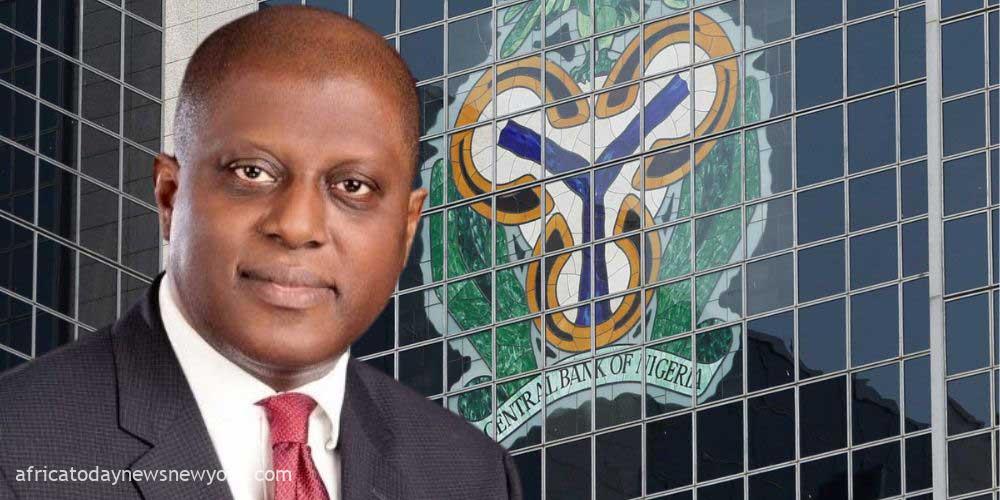Mr. Yemi Cardoso who is the Governor of the Central Bank of Nigeria (CBN), on Tuesday told federal law makers in the country that the task of stabilizing the Naira was beyond the apex bank.
He spoke while addressing the House of Representatives to explain issues responsible for the foreign exchange challenges facing the nation.
The CBN boss informed the legislators that although the CBN has the official mandate to ensure a stable value of the Naira, the dwindling foreign exchange earnings by the nation and the increasing demand for foreign exchange by Nigerians for imports, school fees, foreign travels must be addressed to have a stable foreign exchange market.
His words, “Permit me to say that put simply, the exchange rate is determined by the dynamics of supply and demand for a product or service. In essence, similar to the pricing of cows or cars, the value of the US Dollar in Nigeria is determined by the balance of US Dollars entering the country and the demand for US Dollars among Nigerians.
“Applying this demand and supply principle, let’s examine how the exchange rate has performed in recent years. The exchange rate in Nigeria has increased/depreciated due to the simultaneous occurrence of two factors: a decline in the supply of US Dollars coinciding with a surge in the demand for US Dollars.
Read Also: Nigerians Groan As CBN Adjust Exchange Rate To ₦1,356/$1
Mr. Cardoso revealed that imports requiring dollars amounted to $16.65 billion in 1980 but that, “by 2014, the annual import expenditure had significantly surged to $67.05 billion, although it gradually decreased to $54.71 billion as of last year.
“Similarly, food imports escalated from $2.63 billion in 1980 to US$14.84 billion in 2019.”
He added that the number of Nigerian students abroad had grown astronomically.
Mr. Cardoso said, “In the 1980s and 1990s, the need for US Dollars for their living expenses was minimal. However, recent data shows a significant change.
“According to UNESCO’s Institute of Statistics, the number of Nigerian students abroad increased from less than 15,000 in 1998 to over 71,000 in 2015. By 2018, this figure had reached 96,702 students, as per the World Bank.
“Another report projects the number of Nigerian students studying abroad to exceed 100,000 by 2022.”
“Continuing on the topic of the demand for US Dollars, Nigeria’s annual imports, which require dollars for payment, amounted to US$16.65 billion in 1980.
“From the aforementioned points, we can infer that the genuine issue impacting the exchange rate is the simultaneous decrease in the supply of, and increase in the demand for, US Dollars.
“It also seems that the task of stabilizing the exchange rate, while an official mandate of the CBN, would necessitate efforts beyond the Bank itself and indeed to an attitudinal change of all our citizens.
Mr. Cardoso said his team remained committed to price stability and determined to achieve that objective.
